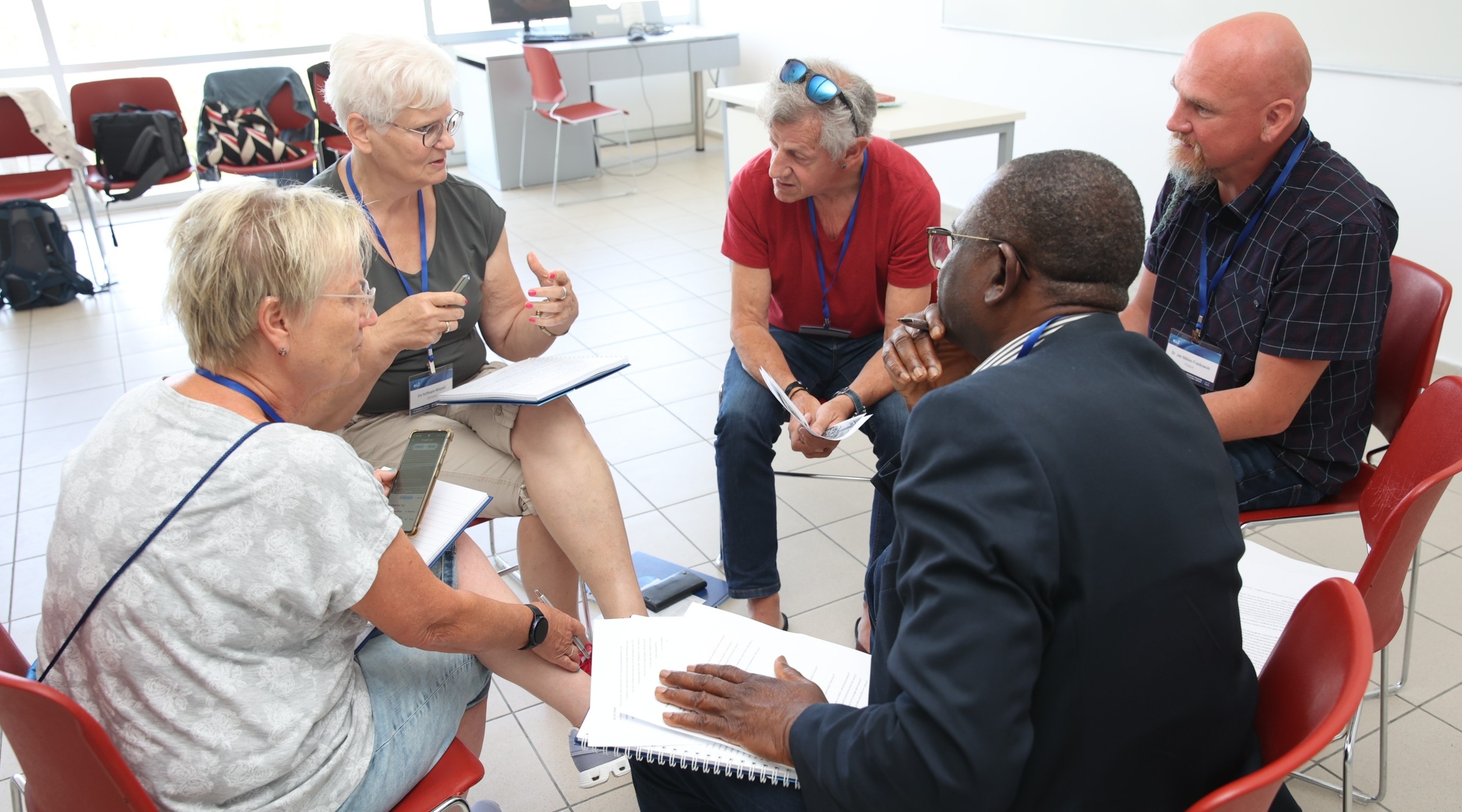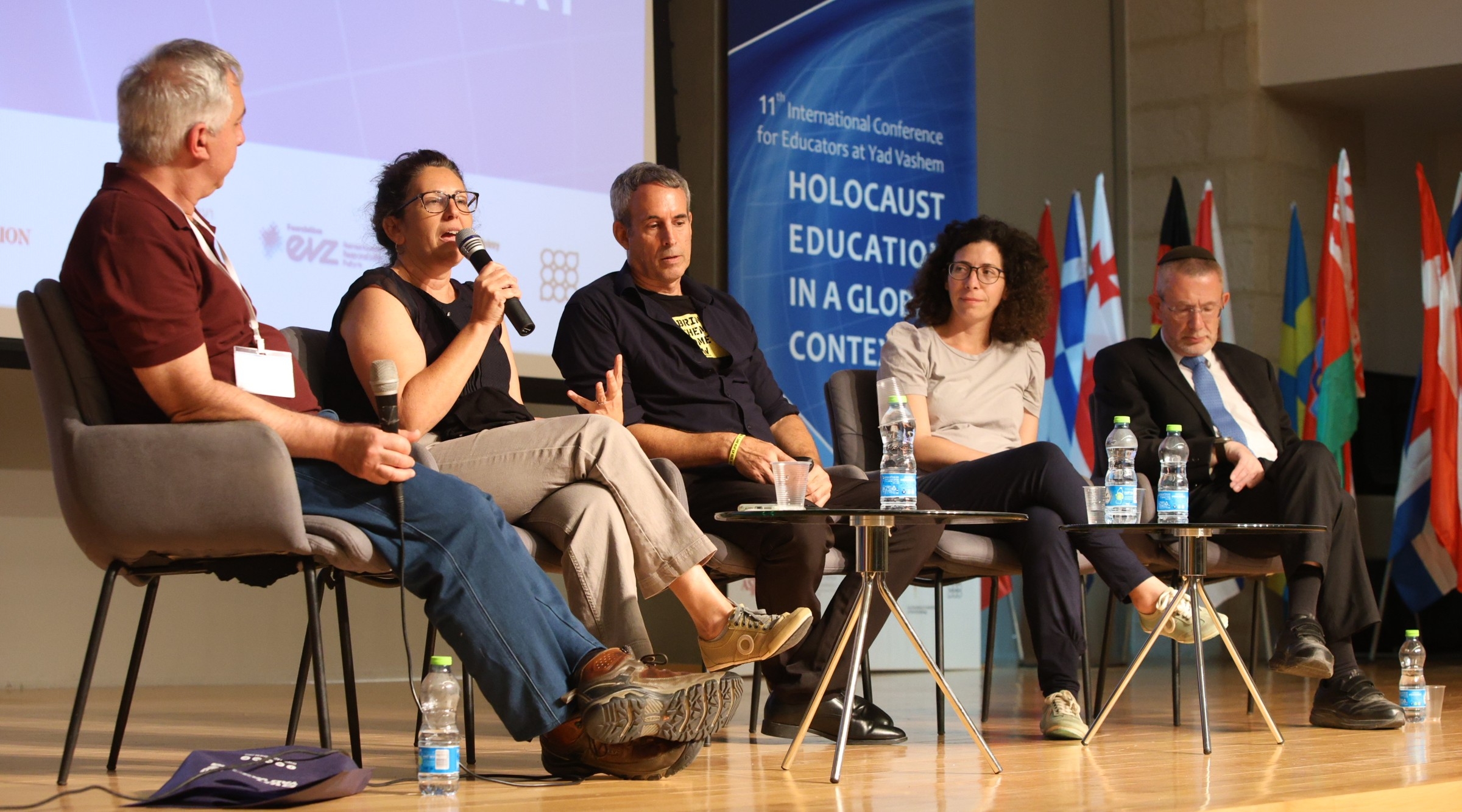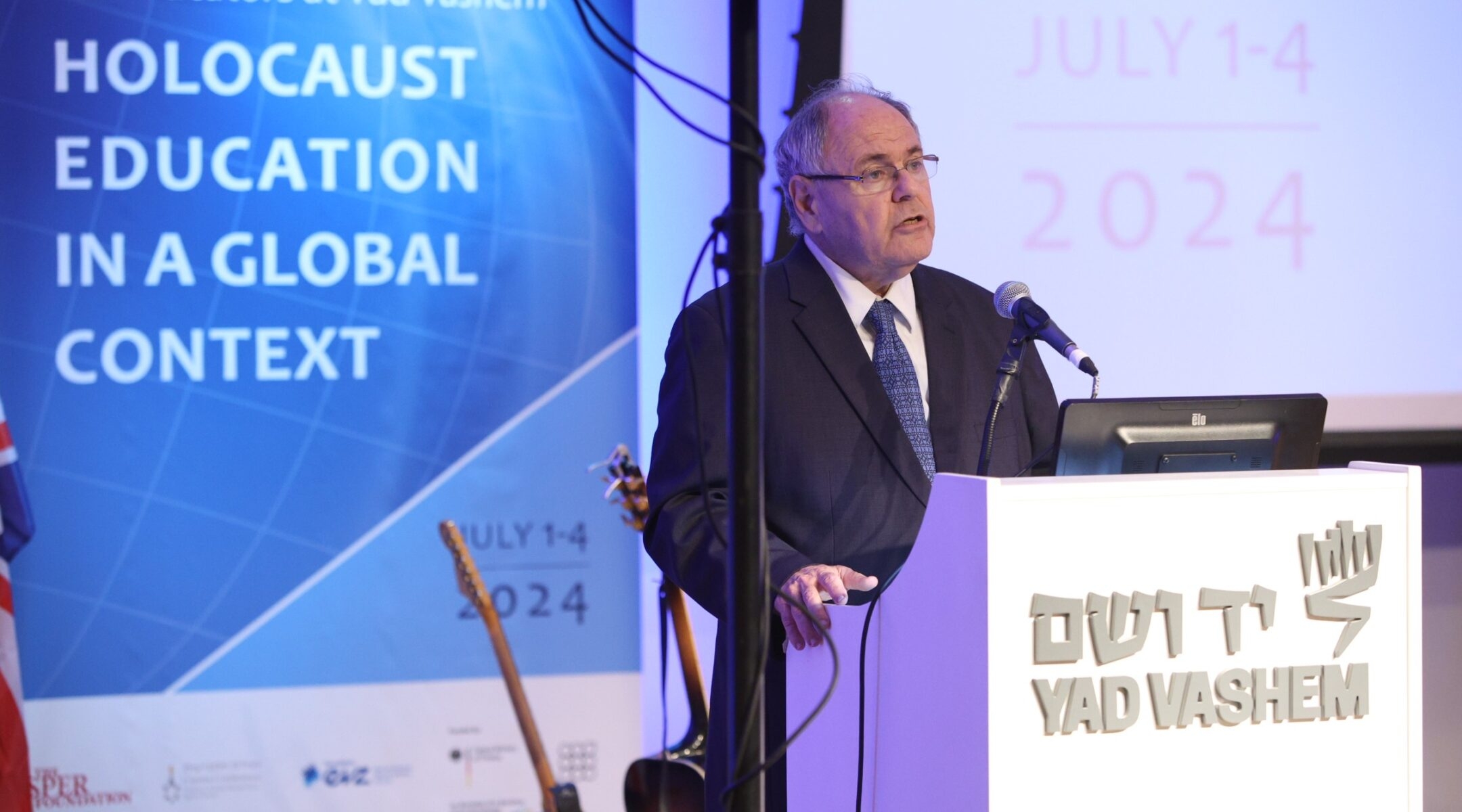The first major Global Holocaust Education Conference and Academic Seminar since October 7th is taking place on the Mount of Remembrance at Yad Vashem.
Yad Vashem’s International Institute for Holocaust Education has been engaged with two significant events aimed at strengthening its commitment to fostering effective and impactful Holocaust education and fighting antisemitism. Most notably, the International Educational Conference, entitled “Holocaust Education in a Global Context,” that took place 1-4 July 2024 on the Mount of Remembrance in Jerusalem. Concurrently, the second annual Alan Cornell US Campus Faculty Seminar was also held at Yad Vashem. Both programs are specifically designed to equip educators and university professors with essential knowledge about Holocaust history and the fight against antisemitism.
The International Educational Conference unites about 150 educators from 40 countries over four days. This was Yad Vashem’s first conference since the horrific October 7th Massacre in Southern Israel, providing an essential opportunity to discuss the severe challenges of Holocaust education in this post-October 7th world.
“At a time when antisemitism is exploding around the world, we are witnessing rampant Holocaust distortion and inversion in mainstream society,” emphasized Yad Vashem Chairman Dani Dayan. “These conferences are not just a meeting of the minds of educators charged with teaching the Holocaust to our younger generation. The fact that educators and academicians are coming to Yad Vashem testifies to a commitment to history and its necessity in their respective societies. It sends a signal to our leaders that Holocaust education is important not only for knowledge and awareness regarding history but as an indispensable tool in creating a more tolerant and open society.”

Teachers from all over the world gather at Yad Vashem for an international conference on Holocaust education. (Gilad Artzie / Yad Vashem)
Participants of both the International Conference and the Alan Cornell Academic Seminar were introduced to Yad Vashem’s extensive archival holdings, gaining firsthand exposure to primary sources from the Holocaust period. Through a series of in-depth workshops, lectures and discussions, participants can share ideas and best practices, including strategies for combating Holocaust distortion, inversion, and antisemitism. It is organized to address new and upcoming challenges to Holocaust education, as Holocaust remembrance enters a new stage.
“Today, Holocaust education experiences challenges that were hardly ever seen before,” said Dr. Gilad Olstein, the director of Yad Vashem’s International Institute for Holocaust Education and head of the International Conference. “One of the purposes of this international conference is to openly discuss, with all frankness, the challenges we face today and are about to face in the years ahead. For example, on the threshold of a new era in which the world will no longer hear personal testimonies from Holocaust survivors, Yad Vashem educators presented innovative approaches developed at the Mount of Remembrance to teach students about the history of the Holocaust in the absence of survivor testimony.”
The programs of study, situated among the institute’s poignant memorials and exhibits, reflect Yad Vashem’s commitment to fostering solid and responsible Holocaust education and meeting contemporary challenges, such as antisemitism. Through these projects, Yad Vashem realizes its ongoing mission of commemoration and Holocaust education—all while preserving their relevance for coming generations.

Panel discussion during Yad Vashem’s “Holocaust Education in a Global Context” Conference. (Gilad Artzie / Yad Vashem)
Among all the international conferences that deal with Holocaust education, the meetings held by Yad Vashem have become the most anticipated by the educational community and draw the highest number of participants. This year, educators from 42 countries have participated, many from nations where antisemitism has recently increased, such as South Africa, the UK, France, and the US.
In an average year, Yad Vashem hosts about 70 seminars, engaging over 2000 teachers worldwide, most of whom are not Jewish. However, since October 2023, daily work with foreign educators has become increasingly challenging due to rising antisemitism and negative perceptions of Israel’s actions in Gaza. Despite these challenges, the conference tackled other critical issues in Holocaust education, reflecting the complex global landscape post-October 7th. Topics included Holocaust education in the aftermath of October 7th, comparisons between contemporary events and the Holocaust, and the use of technology in Holocaust education.
In these challenging times, Yad Vashem remains steadfast in its mission, recognizing that deeper insights into antisemitism and the history of Israel and Zionism can help dispel misconceptions. Equally important has been the creation of supportive communities for educators dedicated to Holocaust education.
This is a Paid Post by Yad Vashem, the World Holocaust Remembrance Center.
More from Yad Vashem - The World Holocaust Remembrance Center